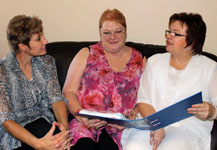Latest News Archive
Please select Category, Year, and then Month to display items
![]()
#UFSupdate (18 March 2020): UFS IMPLEMENTS MEASURES TO MINIMISE RISK OF COVID-19 TO STAFF
STATEMENT BY PROF FRANCIS PETERSEN, RECTOR AND VICE-CHANCELLOR
The executive management of the University of the Free State (UFS) welcomes the announcement of Dr Blade Nzimande, Minister of Higher Education, Science and Technology on 17 March 2020 that all post-school training institutions will have an early recess, starting on 18 March 2020. The Minister’s directive that universities should minimise risk of COVID-19 to all its staff during this time is also welcomed.
The announcement of Dr Nzimande is in line with the university’s decision on 16 March 2020 to suspend the academic programme as from 17 March 2020 and to resume it again on 14 April 2020.
It is important for us all to know that this is not business as usual, and that different thinking is required. Responsible citizenship is one of the crucial elements the world has increasingly been experiencing for the past few weeks. This is why we must act out our responsibility towards one another by focusing on ways in which social distancing can be achieved – especially during this low-risk period that South Africa is still experiencing. This is one of the reasons that informed the university’s decision on 16 March 2020 week to suspend the academic programme and also for students to vacate the residences by 20 March 2020.
The health and well-being of our staff members are equally important. The university’s Employee Task Team that was established on 16 March 2020 analysed options for the continuation of university operations during the recess period. These options were submitted to the executive management, discussed with the Chairperson of the UFS Council and approved on 18 March 2020.
Staff members who have children at school and pre-school may work from home on 19 and 20 March 2020. For the period 23 March 2020 to 13 April 2020, the number of staff members present on all three campuses will be reduced to a minimum and staff members may be allowed to work from home where practically possible.
Arrangements have been made to accommodate those staff members who are performing services which cannot be done from home (such as cleaning, gardening, maintenance, sports, etc) in a flexible and reasonable way. Similar arrangements will be made with office-based support services staff, prioritising institutional needs and based on humane and personal circumstances. Academic staff have been requested to ensure that the online learning materials are finalised and made available for the online learning platform.
The decision for employees to work from home is based on the premise that all employees are deemed to be at work from 23 March 2020 to 13 April 2020. This requires staff members to be available and contactable by line managers at all times during the university’s normal working hours.
I am comfortable that these measures will alleviate the concerns from our staff regarding the spreading of COVID-19 and the risk to themselves without compromising university operations.
Prof F W Petersen
Rector and Vice-Chancellor
University of the Free State
UFS Faculty of Law and Department of Health join hands to combat modern day slavery
2012-10-03
 |
At this event, were from the left: Dr Adri Krieger and Dr Mariaan Kotze. Both are from the Department of Health: Directorate Forensic Services. Far right is Dr Beatri Kruger from the Unit for Children's Rights and the Department of Criminal and Medical Law at the UFS.
4 October 2012 |
Research and court cases confirm that the trade in people is a reality in South Africa. According to Dr Beatri Kruger from the Unit for Children's Rights and the Department of Criminal and Medical Law at the University of the Free State (UFS), complex challenges are faced in combating human trafficking. One of these challenges is a lack of knowledge of this crime and the difficulty in identifying trafficked victims.
To address the lack of knowledge, a number of discussions took place between Dr Kruger and delegates from the Department of Health.
A project has been initiated to address this problem in the public health sector. A need to raise awareness and provide training to medical practitioners to better understand human trafficking was identified. The most important aim of this initiative is to empower medical staff, to identify trafficked victims that visit hospitals and clinics countrywide and to also treat them appropriately in light of the severe trauma they have often been exposed to. The initiative will also empower medical practitioners to refer patients to other service providers such as social workers and psychologists.
The talks with medical practitioners from the Department of Health have led to training and awareness raising that will be provided at some of the local hospitals before the end of the year. Further training seminars are planned for medical practitioners, which will include a presentation by Dr Kruger on legal issues that are relevant for staff in the public health sector. The multidisciplinary cooperation that was established between representatives from the UFS Faculty of Law and the Department of Health has contributed substantially to a more effective response to human trafficking in South Africa.